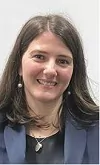- within Food, Drugs, Healthcare and Life Sciences topic(s)
The Honourable Peter Davis, QC, Justice of the Supreme Court in Queensland and Joshua Jones, a barrister at the Queensland Bar, gave an engaging seminar on expert evidence at the Australian Defence Lawyers Alliance (ADLA) recently. Expert evidence is common in many cases, particularly jury trials. Scientists who specialise in DNA, pathologists, psychiatrists and neuropsychologists are all expert witnesses.
The biggest takeaway for me was to always probe deeper when working on a case where the prosecution are relying on expert evidence. Don't take expert evidence at face value. Always interrogate it, subpoena material that has been provided to the expert from the prosecution, including all communications, and ask yourself is this person really an expert?
His Honour reminded all of us to always go back to basics. Ask yourself:
- What is the recognised field of science or learning?
- Is the witness being called an expert in that field?
- Is the evidence an expression of opinion based in that field of learning and within the knowledge of the expert?
- Is the opinion probative of a fact in issue?
These are fundamental steps that can often be missed. His Honour also reminded us that if these steps are not established then the expert evidence may be ruled inadmissible and never make its way to a jury. Having expert evidence excluded in this way often benefits defence - especially if the expert is saying something that is not particularly helpful to your client!
Always consider whether the opinion being expressed by an expert witness is something about which they can give an opinion. Often questions are asked to experts that are not relevant to their expertise. For example, asking a pathologist, who is there to give evidence about the cause of death, about the timing of when an offence occurred is not relevant to their expertise and could mislead the jury into thinking they are qualified to answer that question.
It's important to avoid asking questions of an expert that can only be answered by a jury. This can lead to answers that are 'lay opinion', not expert opinion. Answers that involve 'lay' opinion are often questions that can only be answered by a jury.
His Honour and Joshua Jones spoke about their life in the law and their own experiences working on cases that involved challenging expert evidence. In particular, they spoke about being wary of expert witnesses who are also police officers and always remembering to query how they can establish they are an expert. Experts, ideally, should be independent from the investigative process. Having a police officer as an expert witness should raise red flags with defence from the outset and should prompt defence lawyers to look at how an expert witness has been briefed by the prosecution or police informant.
Sometimes you can raise issues such as whether a witness is an expert with the prosecution ahead of court. You might be able to come to an agreement that the prosecution won't rely on the expert which saves the need to fight it out in court. You should also ask the prosecution to identify what they are relying on in any expert report they are using.
It was great to be in the Gold Coast this year and meet our colleagues from across Australia as a part of the ADLA conference. After two years of cancellations and lockdowns, it was beneficial to be able to share our experiences working on cases and hear from interesting speakers, including his Honour and Joshua Jones. We thank them for generously giving up their time to come and speak to us for an informative and useful session that will be relevant to our work going forward now that lockdowns seem to be behind us.

